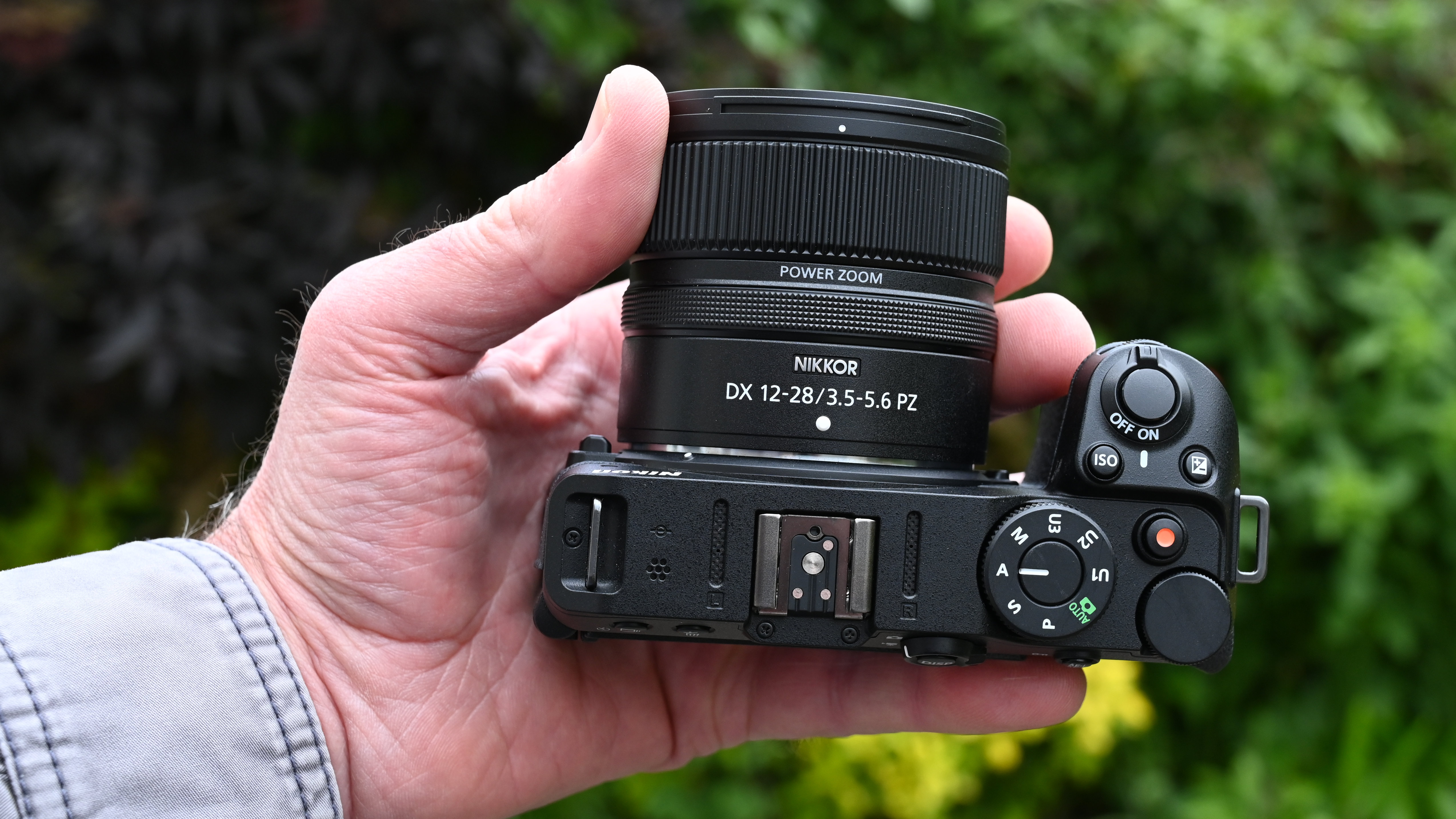
The Nikon Z DX 12-28mm f/3.5-5.6 PZ VR fills a hole in the company’s line-up of APS-C format Z-mount lenses, as there were previously no ultra-wide-angle options. As such, you’d need to use something like the Nikon AF-P DX 10-20mm f/4.5-5.6G VR via an FTZ or FTZ II mount adapter, which certainly isn’t ideal.

The 12-28mm therefore makes a welcome addition to the trio of Nikon Z DX zoom lenses already on the market, namely the unfeasibly small Z DX 16-50mm f/3.5-6.3 VR standard zoom, Z DX 50-250mm f/4.5-6.3 VR telephoto zoom and Z DX 18-140mm f/3.5-6.3 VR superzoom.
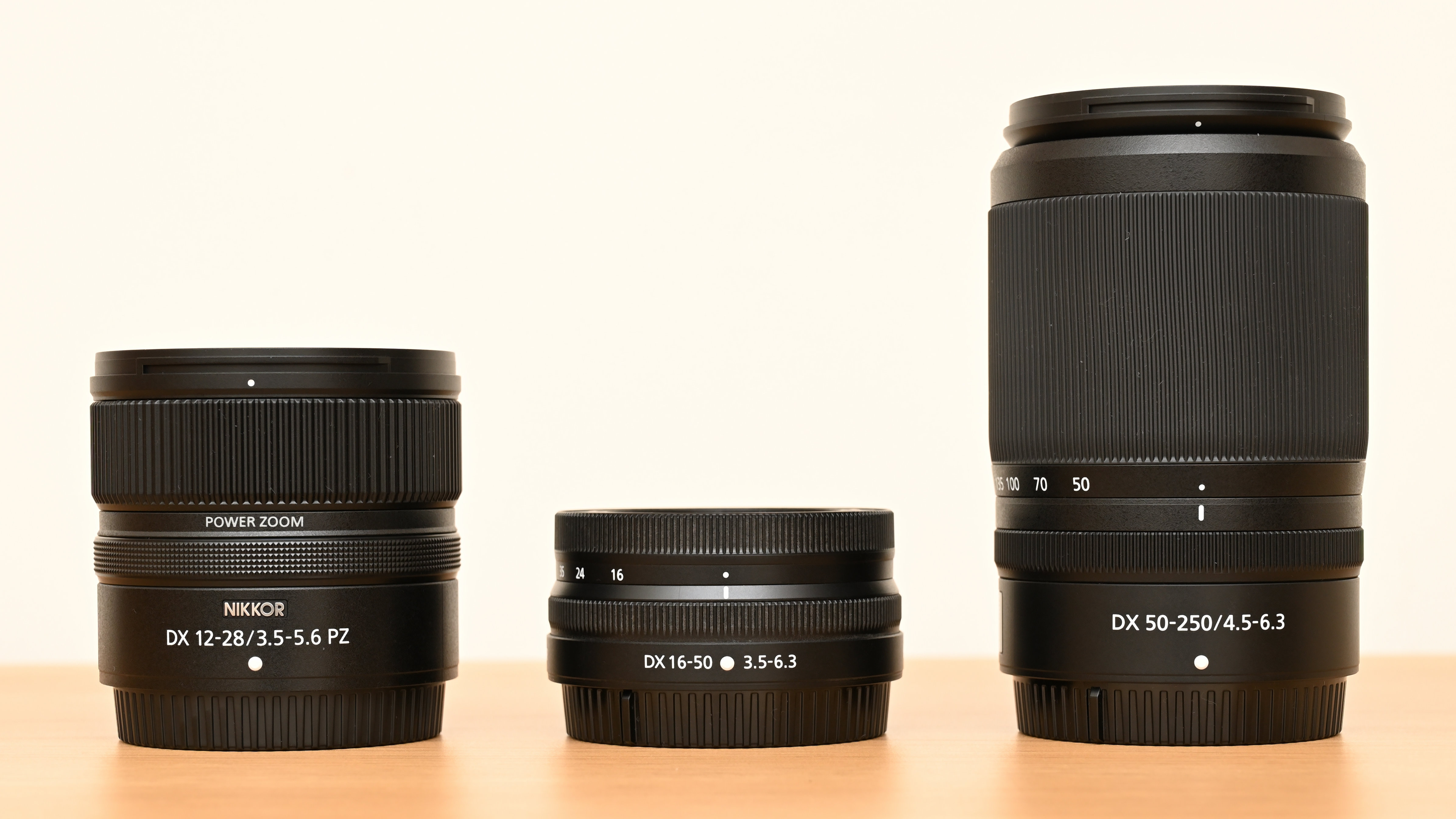
Specifications
Mount: Nikon Z (DX)
Full frame: No
Autofocus: Yes
Image stabilization: Yes
Lens construction: 12 elements in 11 groups
Angle of view: 99 to 53 degrees
Diaphragm blades: 7
Minimum aperture: f/16-25
Minimum focusing distance: 0.19m
Maximum magnification ratio: 0.21x
Filter size: 67mm
Dimensions: 72x63.5mm
Weight: 205g
Key features
With its videocentric design, the Z 12-28mm is a perfect match for the Nikon Z 30, which is more ideal for vlogging than for stills photography, as it lacks a viewfinder. The lens itself has a motorized power zoom at the head of its features list. It’s a good one too, with no less than 11 speed options that cover the full zoom range in as little as about half a second, or as much as 36 seconds.
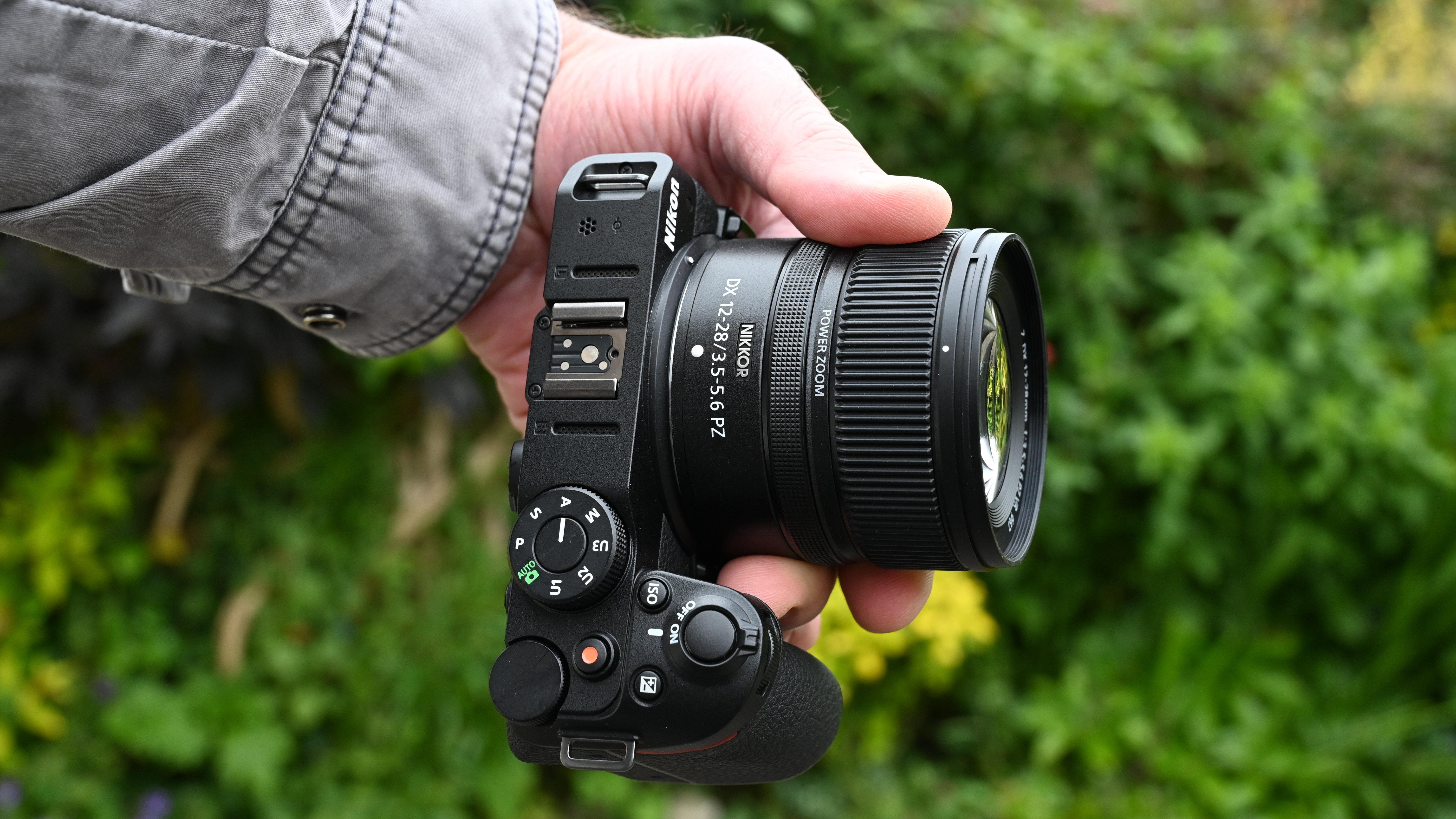
As well as using the onboard zoom control ring, you can assign the zoom function to customizable buttons on Nikon’s camera bodies, complete with applying a preset from all 11 choices of zooming speed. However, you might well need to update your camera’s firmware to enable this. Zooming can also be applied from the zoom buttons on Nikon’s ML-L7 wireless Bluetooth remote controller for various Z system cameras (pictured below) as well as Nikon’s SnapBridge app.
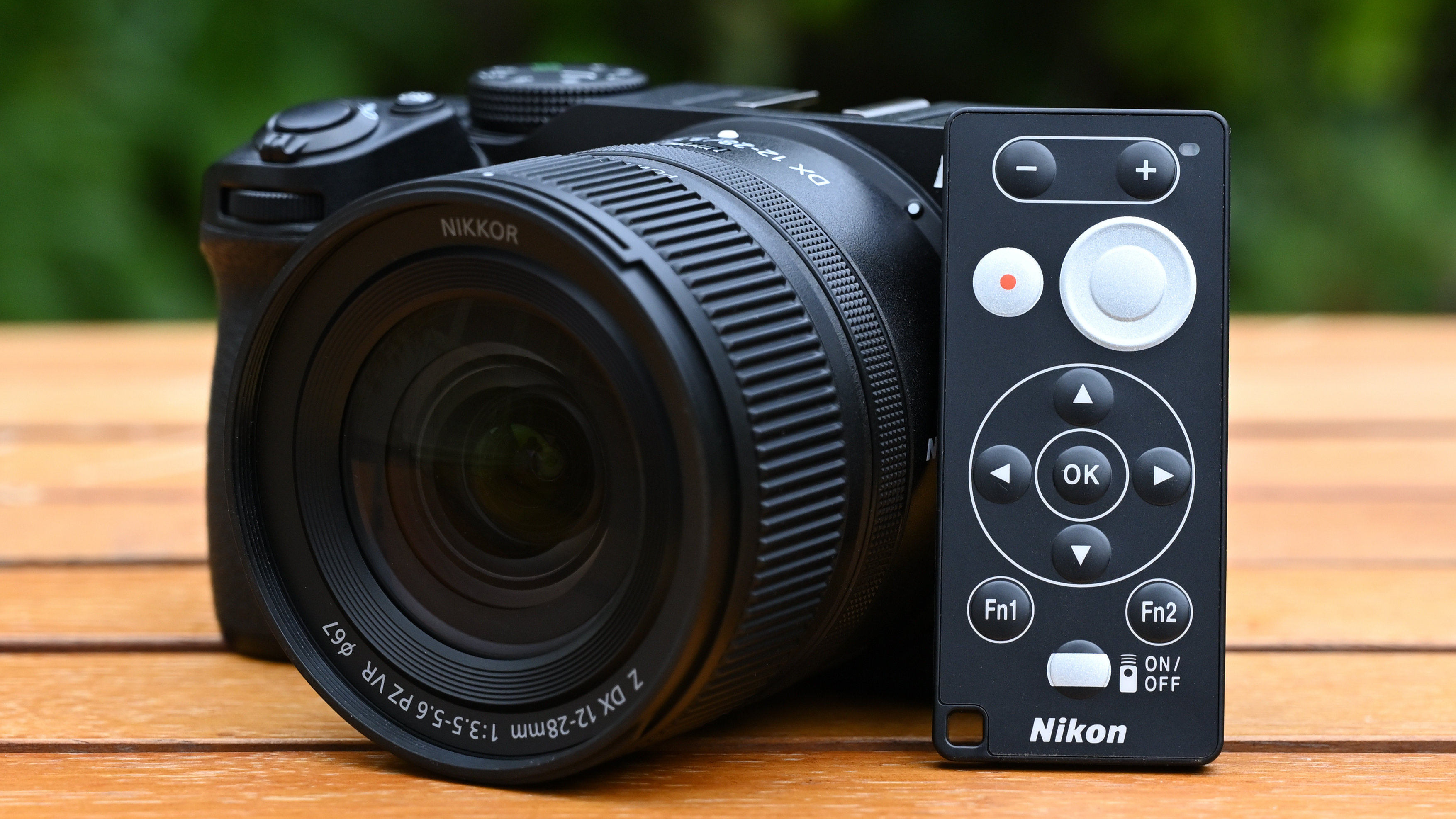
Another video-friendly and more unusual feature for an ultra-wide-angle lens is that the overall physical length remains fixed throughout the whole zoom as well as the focus range, making it ideal for use with a gimbal. It’s good for extreme close-ups too, with a minimum focus distance of just 19cm or less than 8 inches, as measured from the image sensor in the camera body.
Naturally, the lens isn’t just for shooting video. It also works well for stills photography. Despite weighing in at just 205g, it has 12 optical elements in total, including one aspherical element and one ED (Extra-low Dispersion) element. With an ‘effective’ 18-42mm zoom range in full-frame terms, the lens is well suited to sweeping landscapes and cityscapes, as well as for exaggerating perspective. The f/3.5-5.6 aperture rating isn’t as slow as in some zooms for mirrorless cameras either, so it can make a good stab at architectural interiors.

Given that no Nikon Z DX system cameras have IBIS (In-Body Image Stabilization) optical VR (Vibration Reduction) is a welcome feature, driven by a voice coil motor. One ‘feature’ that’s absent is that you don’t get a hood in the box, which is quite typical for own-brand budget lenses. In this case you’ll have to shell out around £35/$42 for the official Nikon HB-112 lens hood, which is sold separately.
Build and handling
Despite its compact size of 72x63.5mm and lightweight build of 205g, the lens feels a quality item. Unusually for a budget lens, it features weather-seals to enable a dust- and splash-proof construction. However, a contributing factor to keeping the weight off is that the lens has a plastic rather than metal mounting plate, which is naturally less robust but should prove perfectly adequate.
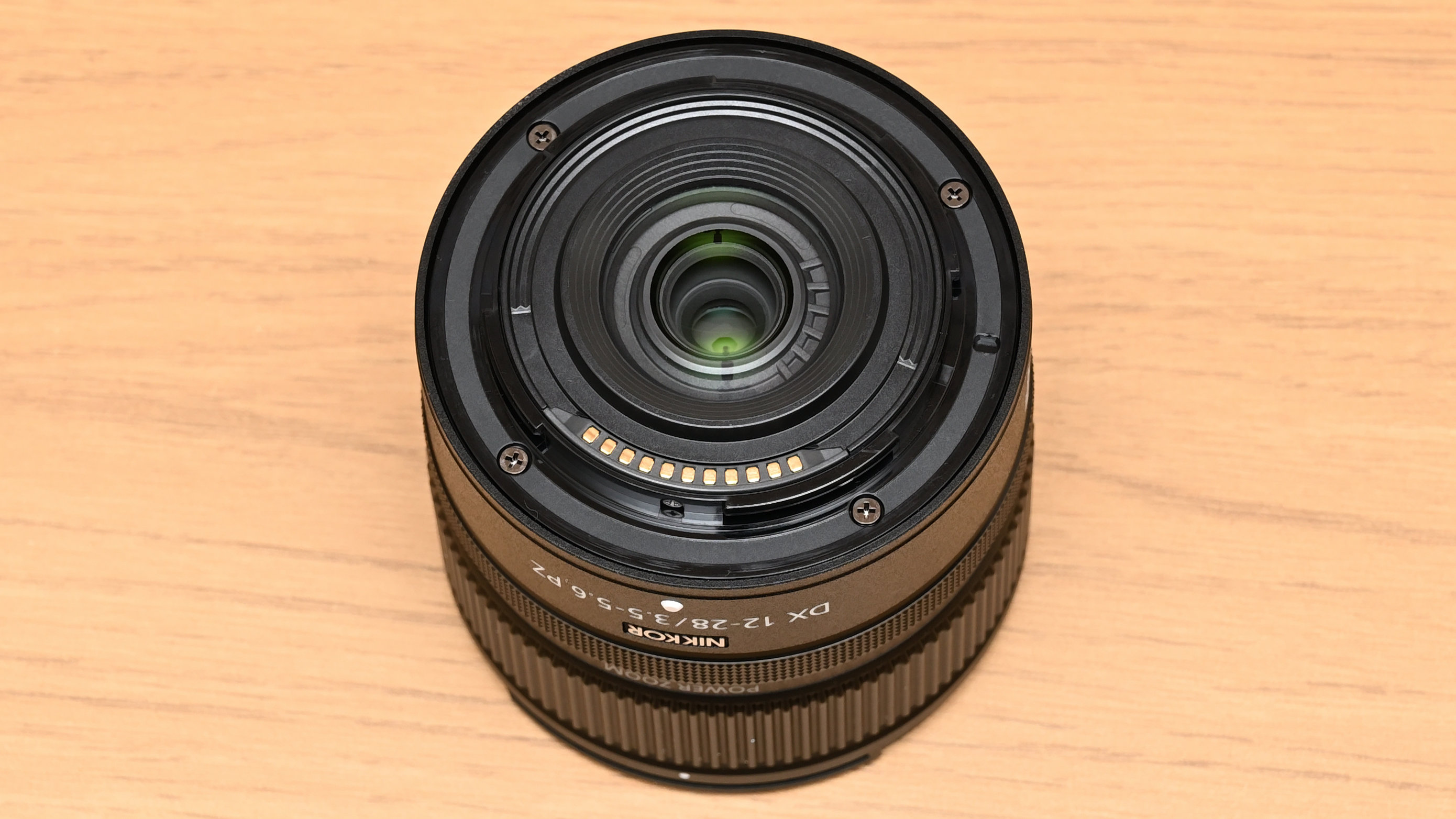
Handling is actually rather lovely. The 11-step motorized zoom enables consistent and repeatable zoom speeds when shooting video and is entirely usable for stills. The fully internal zoom and focus mechanisms are another handling bonus.
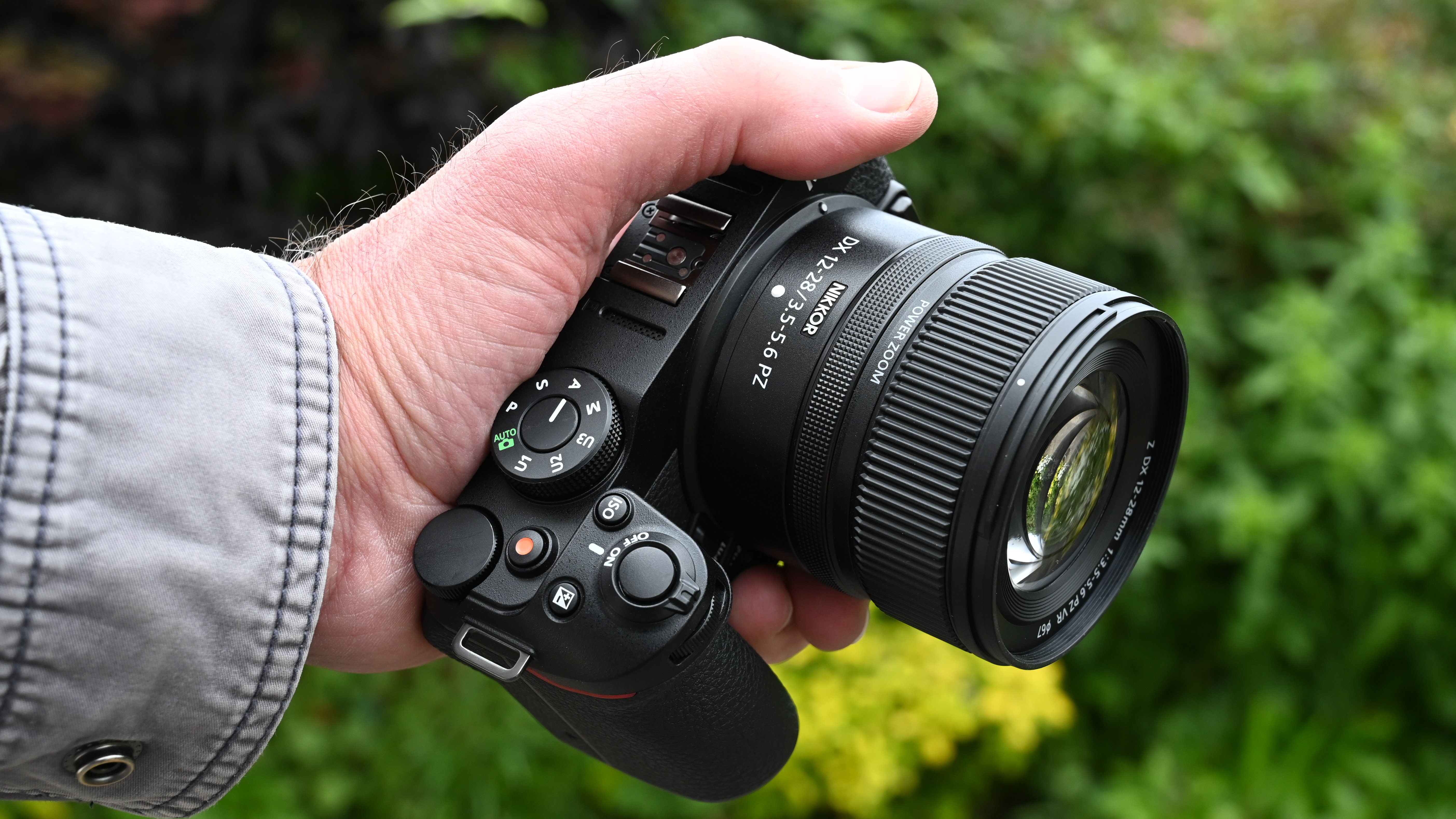
A potential downside is that the lens has no buttons or switches so, for the likes of turning VR on and off or swapping between autofocus and manual focus modes, you’ll need to dip into the host camera’s menu system. On the plus side, the control ring nominally for manual focus can be assigned other functions during autofocus, and is ideal for stepless aperture control when shooting video.
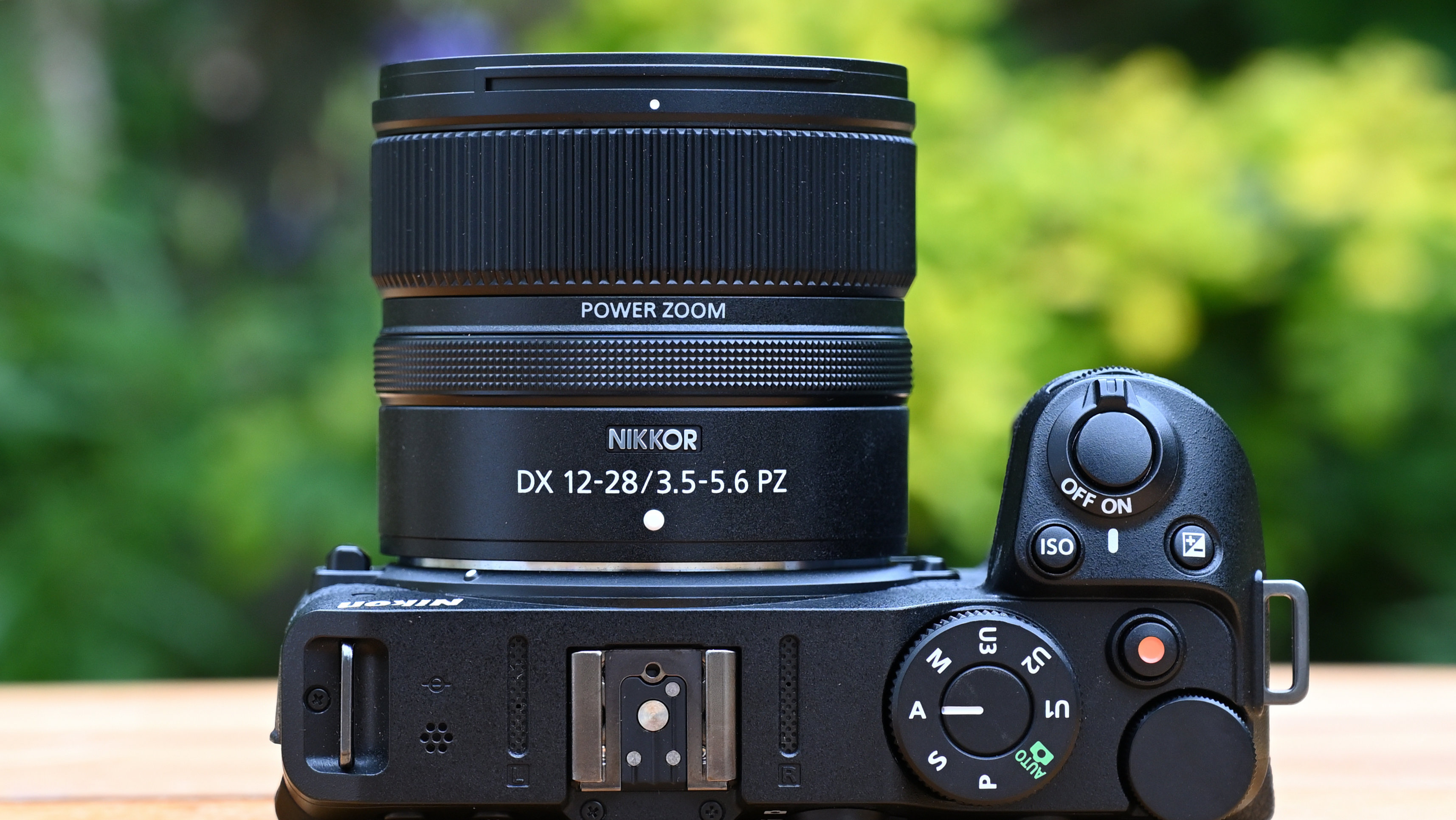
Performance
Based on a stepping motor, autofocus is pretty quick and snappy for stills and enables smooth, virtually silent autofocus transitions when shooting video. Autofocus itself proved consistently reliable in our tests.
Sharpness is very good throughout the entire zoom range, aided in practical terms by 4.5-stop performance from the optical image stabilizer. Even for very wide-angle shooting which is less prone to camera-shake, it’s a boost for handheld photography in very low-lit scenarios, like shooting indoors or at twilight.
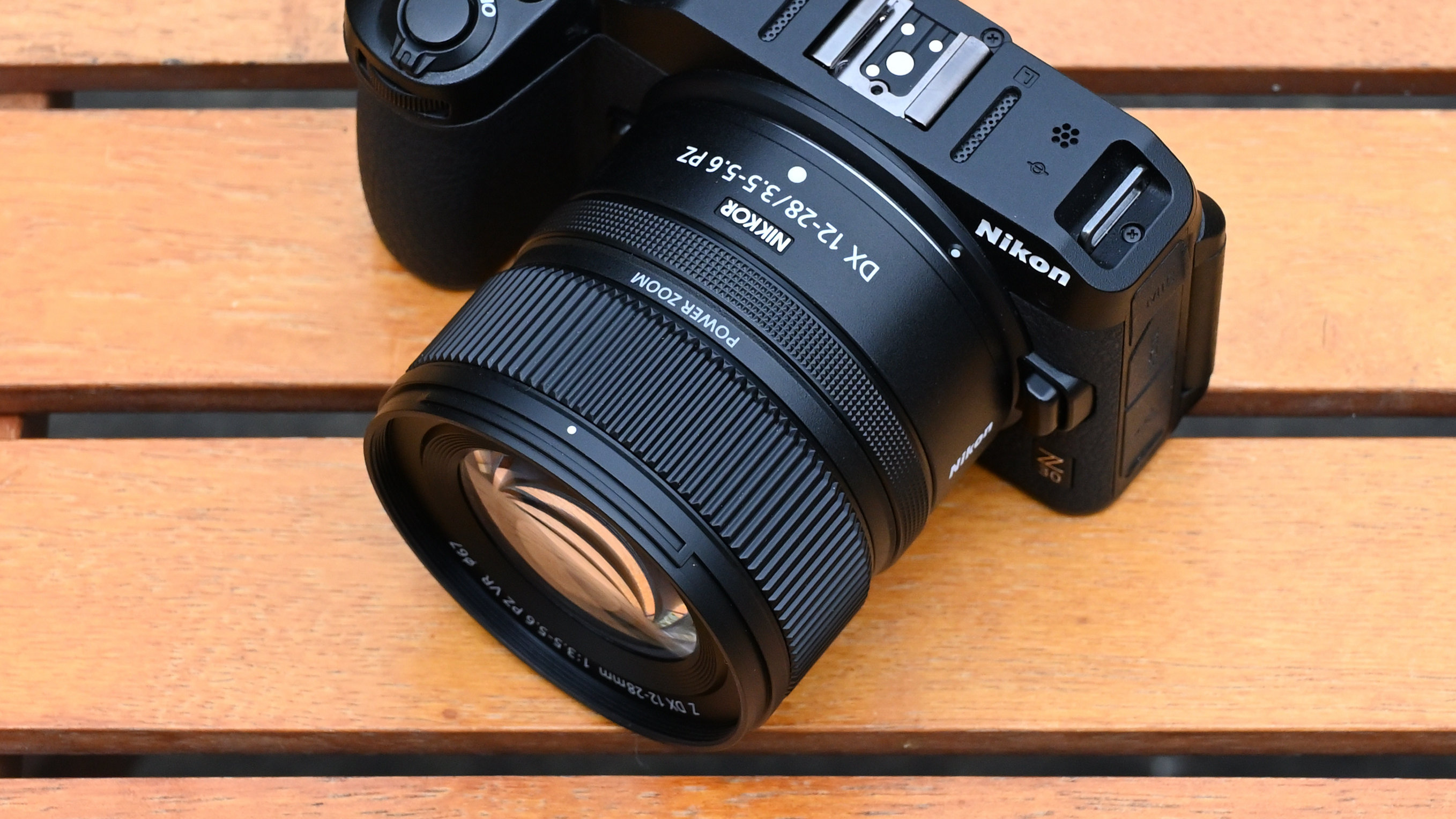
Like many recent lenses designed for mirrorless cameras, especially of the wide-angle variety, this Nikon relies heavily on automatic in-camera correction for distortion, which can’t be switched off. It helps to keep the size and weight down and works well enough, although the purely optical results at the wide-angle end of the zoom range would be pretty much unusable.
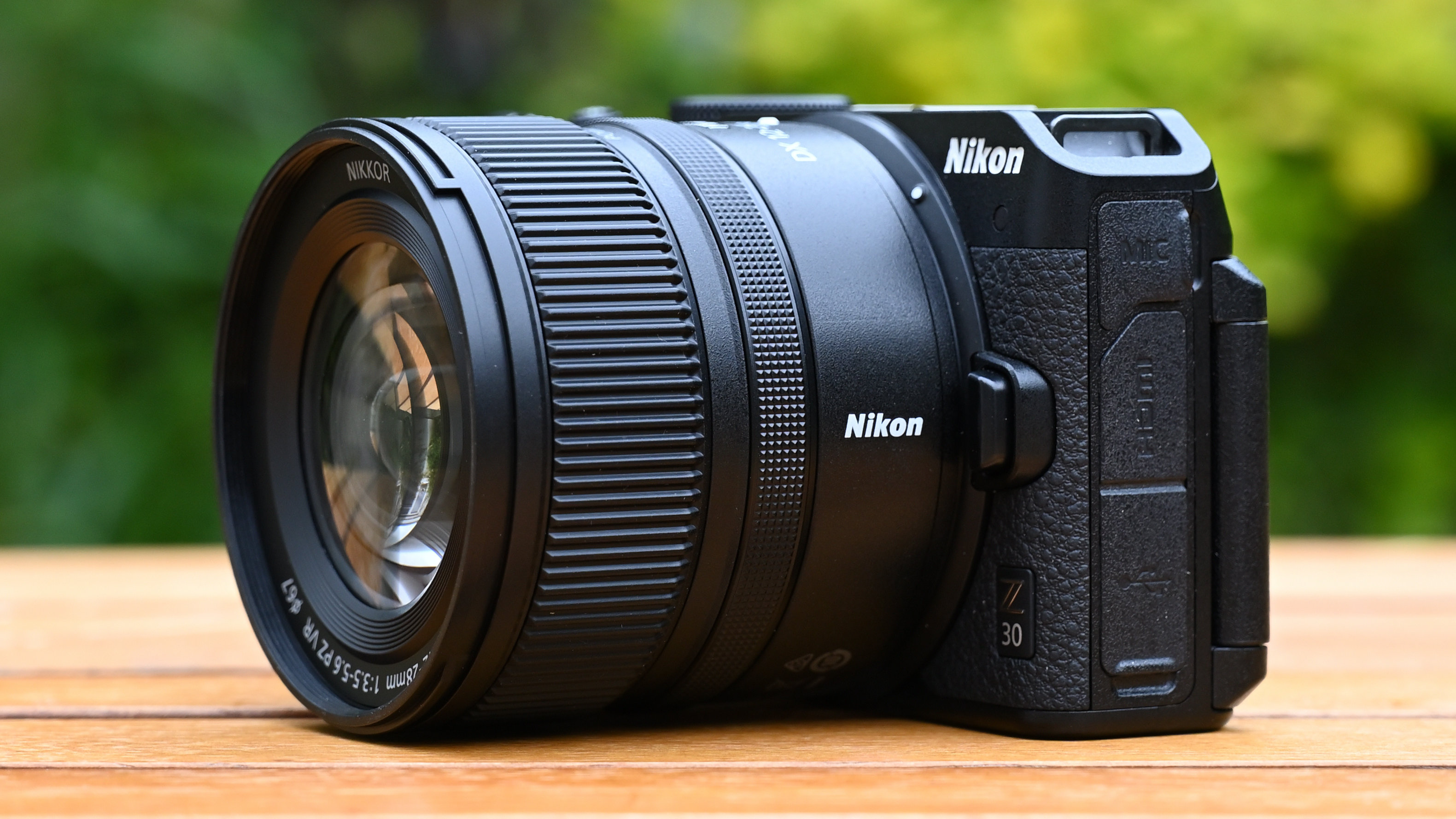
Performance in terms of control over color fringing is actually very good, with no reliance on the automatic in-camera correction of Nikon Z system bodies. All in all, this is a little lens with a big heart, delivering very good results.
Sample images

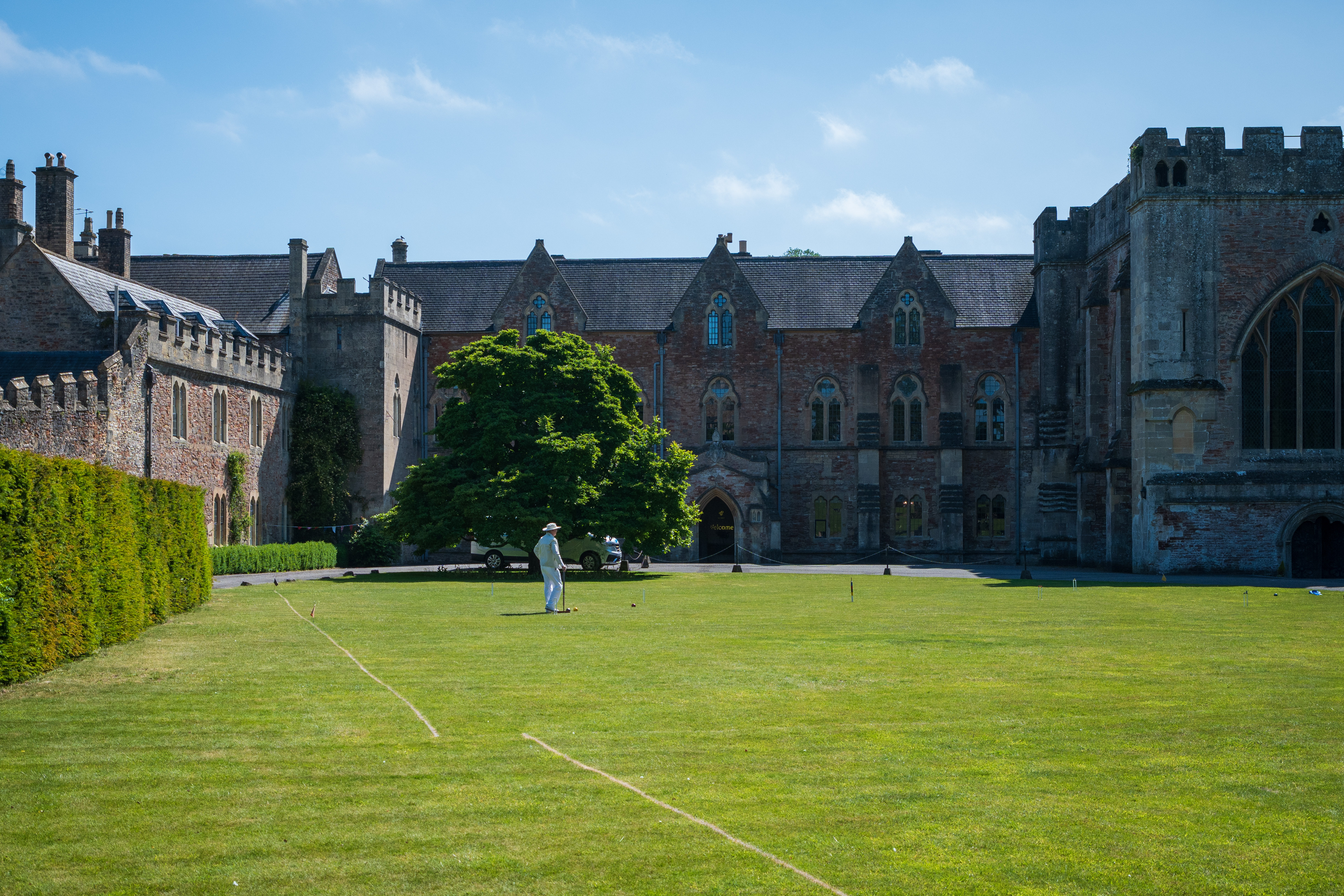












Lab results
We run a range of lab tests under controlled conditions, using the Imatest Master testing suite. Photos of test charts are taken across the range of apertures and zooms (where available), then analyzed for sharpness, distortion and chromatic aberrations.
We use Imatest SFR (spatial frequency response) charts and analysis software to plot lens resolution at the center of the image frame, corners and mid-point distances, across the range of aperture settings and, with zoom lenses, at four different focal lengths. The tests also measure distortion and color fringing (chromatic aberration).
Sharpness:
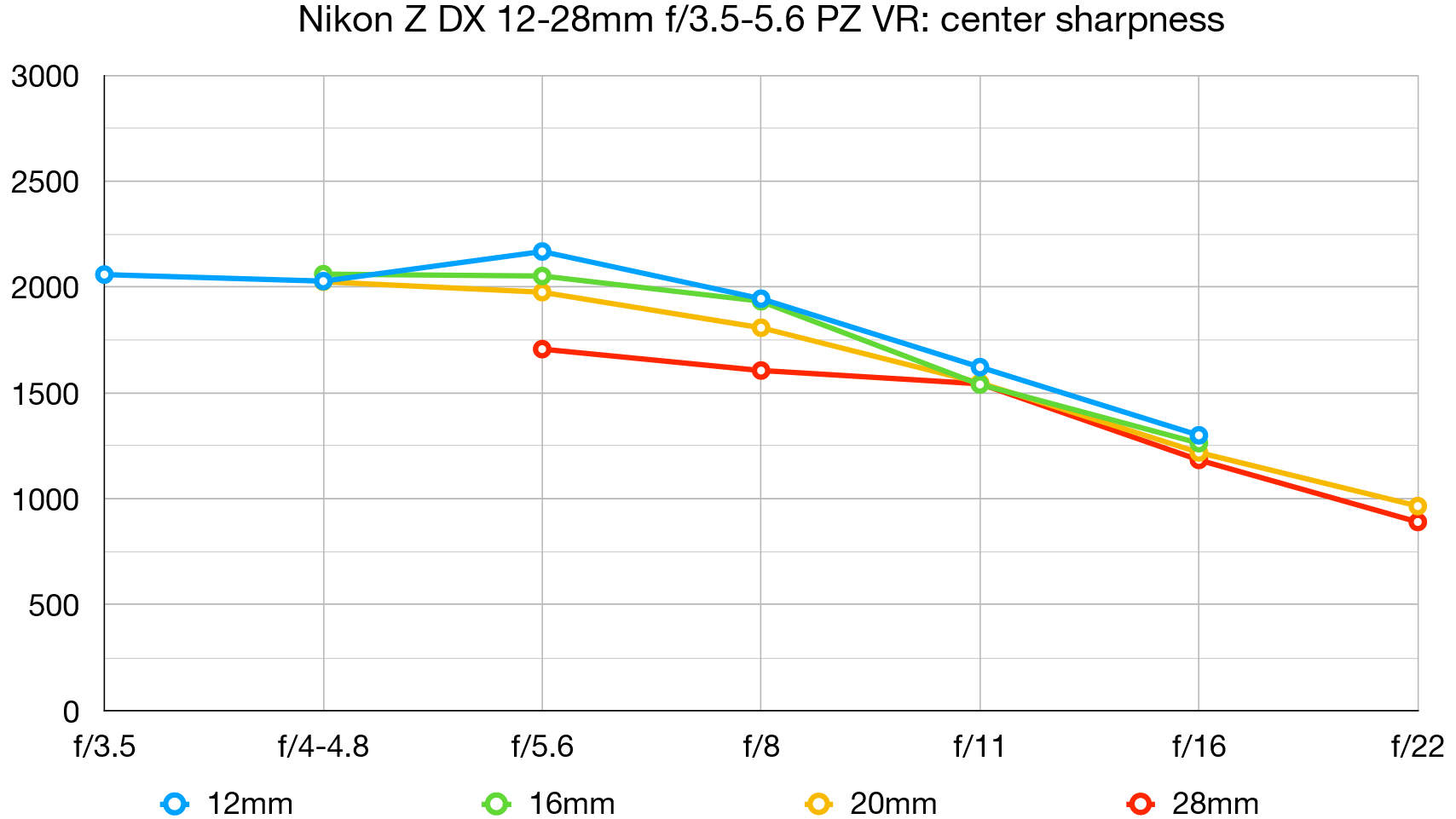
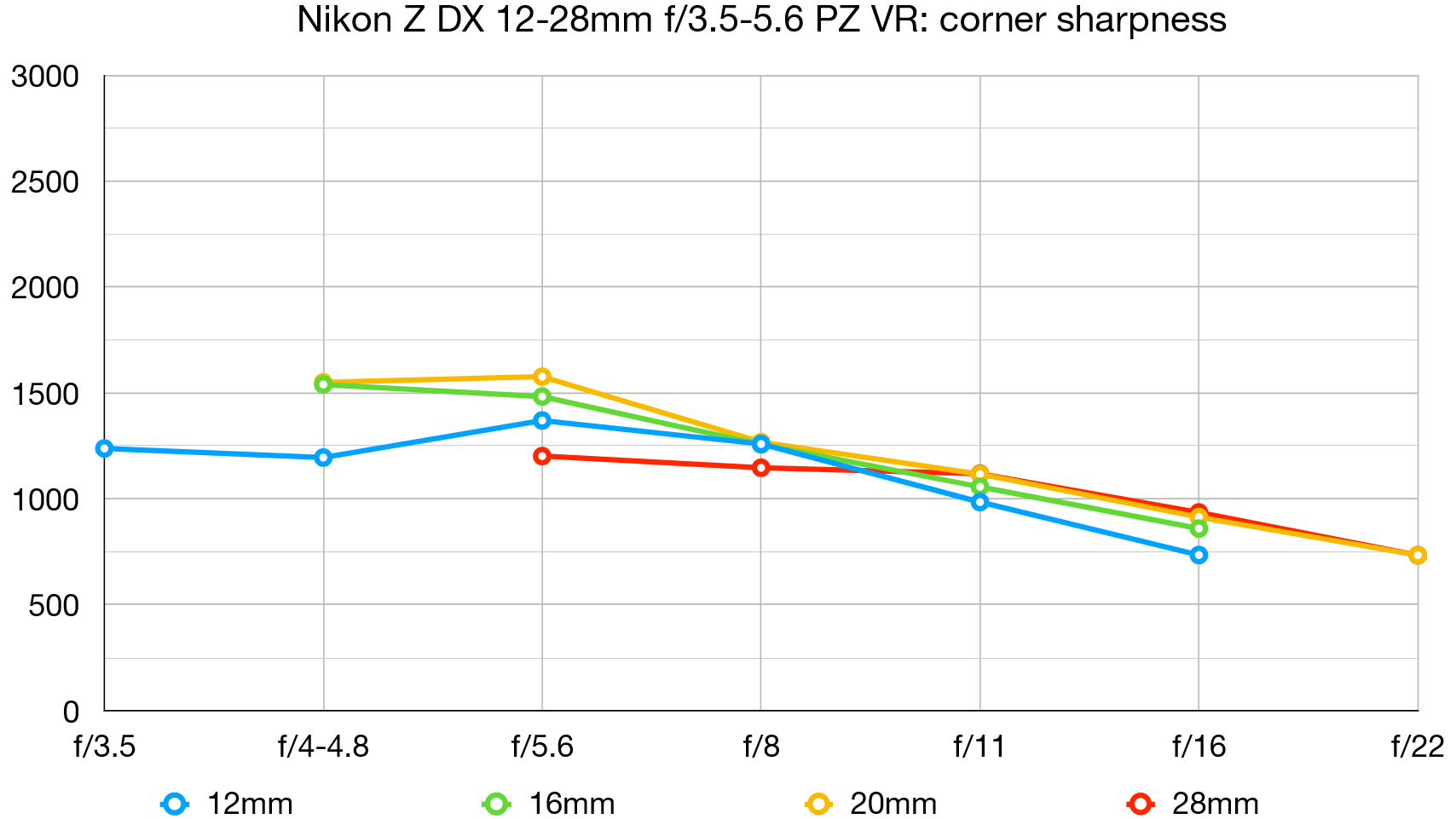
Levels of sharpness are particularly impressive when shooting at the widest available apertures throughout the zoom range, out to the extreme edges and corners of the frame. Center-sharpness is excellent in the 12-24mm sector of the zoom range but drops off a little at the long end.
Fringing:

There’s extremely little color fringing to be seen, even towards the edges and corners of the image frame. That holds true for all zoom and aperture settings.
Distortion:

Lab-test results for distortion look pretty fabulous for an ultra-wide-angle zoom lens but don’t be fooled. Automatic in-camera correction is applied and can’t be switched off. If disabled during RAW editing (only available in some apps), distortion is very severe.
Verdict
With its wide field of view and motorized zoom facility, this is a zoom lens that’s ideal for shooting video on Nikon Z system DX (APS-C) cameras, and for vlogging and content creation in particular. Although made with video in mind, it also works perfectly well for stills, taking expansive landscapes, cityscapes and architectural interiors in its stride. It’s travel-friendly too, being particularly compact and lightweight. Good image quality, handling and all-round performance make it well worth the highly competitive asking price.
Read more:
• Best camera lenses to get
• Best Canon lenses
• Best Nikon lenses
• Best Sony lenses







